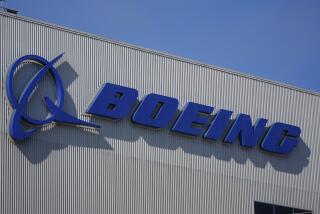UAW Picks Ford as Strike Target : Move Could Give GM Edge on Rolling Out ’88 Models
- Share via
DEARBORN, Mich. — The United Auto Workers union Monday chose Ford Motor as its 1987 strike target, a move that intensifies contract talks at the No. 2 auto maker and leaves General Motors temporarily on the sidelines.
“Our first objective is to establish a settlement pattern that is good for the workers and good for the industry by making stable domestic employment a part of how these companies do business,” said UAW President Owen Bieber, whose choice of Ford was approved by union leaders.
“It’s been said that Ford is supposed to be a hotbed of good ideas, so we’re going to give them the opportunity to demonstrate that the same is true in the labor relations arena,” Bieber said.
Ford chief negotiator Stanley J. Surma said Ford had bargained under the assumption that it would be the target. He said Ford wanted a settlement that addresses the union’s top priority of job security while ensuring that Ford’s quality and competitive position improve.
The UAW has rejected two GM offers and expressed displeasure with Ford’s only offer in a month of bargaining.
The GM and Ford contracts both expire at midnight Sept. 14, but the selection of Ford as the target means the union will seek to settle with Ford first. The union could strike Ford if there is no agreement by the deadline, leaving GM free to roll out 1988 models without immediate fear of interruption.
The union will turn its attention to GM, the nation’s largest auto maker, only after a 200-member Ford worker council approves an agreement, which the union will try to force on GM in a process called pattern bargaining.
Chrysler doesn’t return to the table until 1988, but the union also will try to include it in the pattern. The UAW is bargaining for 335,000 active GM workers and 104,000 Ford workers.
The target decision means contract talks could stretch through the fall, and perhaps into early winter. Most union members consider a Ford settlement easier to reach, especially when its comes to its top demand of greater job security, because Ford is more profitable and has fewer plants and workers than GM. Ford’s 1986 net income was $3.3 billion, while GM earned $2.9 billion.
Negotiations at GM could be more difficult because the union faces a stiff battle in trying to force GM to accept a Ford contract, as GM chief negotiator Alfred Warren emphasized in a statement.
“There are sufficient differences between GM and its domestic competitors that demand a separate agreement specifically tailored to GM,” Warren said.
At GM, the union faces the closure of at least 11 plants and the loss of 30,000 jobs by 1990.
Union leaders have said they want to prevent further closures and to halt the flow of GM work to outside companies and foreign countries.






